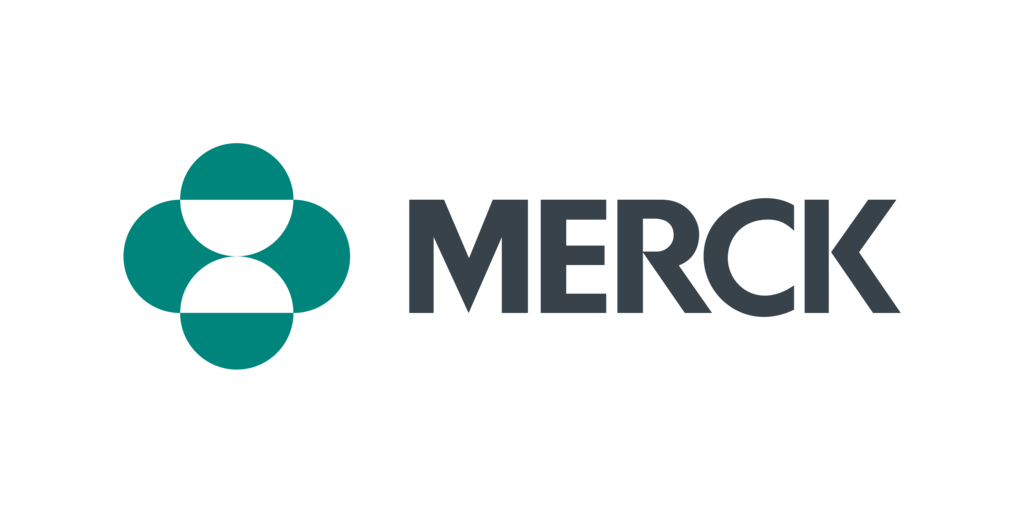Tulisokibart is now being evaluated in two Phase 3 studies in ulcerative colitis and Crohn’s disease
12-week data from the Phase 2 ARTEMIS-UC trial recently published in the New England Journal of Medicine
RAHWAY, N.J.--(BUSINESS WIRE)--Merck (NYSE: MRK), known as MSD outside of the United States and Canada, today announced that new data highlighting the long-term efficacy and safety of tulisokibart (MK-7240), an investigational humanized monoclonal antibody directed to a novel target, tumor necrosis factor (TNF)-like cytokine 1A (TL1A), in ulcerative colitis (UC) and Crohn’s disease (CD) will be presented at the United European Gastroenterology (UEG) Week 2024 Congress in Vienna, Austria.
Long-term efficacy and safety data for tulisokibart from the open-label extension period of the Phase 2 ARTEMIS-UC and APOLLO-CD studies will be featured in two oral presentations. In both studies, at week 50, maintenance of treatment efficacy was generally observed in 12-week induction responders. The observed safety profile in the study extensions was consistent with previously reported data. Key data presentation details:
- #OP078: Long-term efficacy and safety of tulisokibart in patients with Crohn’s disease (CD): Results from the open-label extension period of the Phase 2 APOLLO-CD study; October 14, 10:12-10:24 a.m. CEST
- #OP194: Long-term efficacy and safety of tulisokibart in patients with ulcerative colitis (UC): Results from the open-label extension period of the Phase 2 ARTEMIS-UC study; October 15, 11:54-12:06 p.m. CEST
“We are encouraged by the new maintenance data for tulisokibart in ulcerative colitis and Crohn’s disease, which shows the potential of this novel approach to help patients achieve long-term clinical remission,” said Dr. Aileen Pangan, vice president, global clinical development, Merck Research Laboratories. “Many patients with inflammatory bowel disease do not achieve their treatment goals despite available therapies. There is still a need for additional treatment options to enable patients to manage the challenging symptoms of ulcerative colitis and Crohn’s disease.”
Merck has initiated two Phase 3 studies to evaluate the efficacy and safety of tulisokibart in patients with UC (ATLAS-UC; NCT06052059) and CD (ARES-CD; NCT06430801). These are the first Phase 3 clinical studies for an anti-TL1A antibody in inflammatory bowel disease.
Additionally, results from ARTEMIS-UC, a Phase 2 proof-of-concept study evaluating the efficacy and safety of tulisokibart in patients with moderately to severely active UC were recently published in the New England Journal of Medicine. These data were first presented at the 18th Congress of European Crohn’s and Colitis Organisation (ECCO) in 2023. Findings published in the New England Journal of Medicine show that after 12 weeks, tulisokibart was more effective than placebo for inducing clinical remission in patients with moderately to severely active UC. The publication also includes additional data from a prespecified analysis of patients with a positive test for likelihood of response from cohorts 1 and 2.
About Ulcerative Colitis
Ulcerative colitis (UC) is a chronic disease of the large intestine that causes chronic inflammation and ulcers in the lining of the large intestine and rectum. Symptoms of UC include diarrhea, rectal bleeding, abdominal pain, rectal urgency and weight loss, with some patients also developing complications such as strictures. The severity of symptoms places a substantial burden on the more than five million people living with UC worldwide.
About Crohn’s Disease
Crohn’s disease (CD) causes chronic inflammation which can affect all parts of the gastrointestinal tract from mouth to anus. Symptoms of CD include abdominal pain, diarrhea with or without bleeding and weight loss. These symptoms, along with complications such as fistulas and strictures, can cause significant physical burden on the estimated six to eight million people living with CD worldwide.
About Tulisokibart
Tulisokibart is an investigational humanized monoclonal antibody directed to a novel target, tumor necrosis factor (TNF)-like cytokine 1A (TL1A), that is associated with both intestinal inflammation and fibrosis. Tulisokibart is thought to bind both soluble and membrane-bound human TL1A. Clinical studies suggest that tulisokibart may inhibit inflammatory pathways involved in inflammatory bowel disease (IBD), and help reduce intestinal fibrosis, which may be important in altering disease progression in IBD. Merck is developing tulisokibart for the treatment of immune-mediated inflammatory diseases including ulcerative colitis, Crohn’s disease and systemic sclerosis-associated interstitial lung disease (SSc-ILD).
About Merck
At Merck, known as MSD outside of the United States and Canada, we are unified around our purpose: We use the power of leading-edge science to save and improve lives around the world. For more than 130 years, we have brought hope to humanity through the development of important medicines and vaccines. We aspire to be the premier research-intensive biopharmaceutical company in the world – and today, we are at the forefront of research to deliver innovative health solutions that advance the prevention and treatment of diseases in people and animals. We foster a diverse and inclusive global workforce and operate responsibly every day to enable a safe, sustainable and healthy future for all people and communities. For more information, visit www.merck.com and connect with us on X (formerly Twitter), Facebook, Instagram, YouTube and LinkedIn.
Forward-Looking Statement of Merck & Co., Inc., Rahway, N.J., USA
This news release of Merck & Co., Inc., Rahway, N.J., USA (the “company”) includes “forward-looking statements” within the meaning of the safe harbor provisions of the U.S. Private Securities Litigation Reform Act of 1995. These statements are based upon the current beliefs and expectations of the company’s management and are subject to significant risks and uncertainties. There can be no guarantees with respect to pipeline candidates that the candidates will receive the necessary regulatory approvals or that they will prove to be commercially successful. If underlying assumptions prove inaccurate or risks or uncertainties materialize, actual results may differ materially from those set forth in the forward-looking statements.
Risks and uncertainties include but are not limited to, general industry conditions and competition; general economic factors, including interest rate and currency exchange rate fluctuations; the impact of the global outbreak of novel coronavirus disease (COVID-19); the impact of pharmaceutical industry regulation and health care legislation in the United States and internationally; global trends toward health care cost containment; technological advances, new products and patents attained by competitors; challenges inherent in new product development, including obtaining regulatory approval; the company’s ability to accurately predict future market conditions; manufacturing difficulties or delays; financial instability of international economies and sovereign risk; dependence on the effectiveness of the company’s patents and other protections for innovative products; and the exposure to litigation, including patent litigation, and/or regulatory actions.
The company undertakes no obligation to publicly update any forward-looking statement, whether as a result of new information, future events or otherwise. Additional factors that could cause results to differ materially from those described in the forward-looking statements can be found in the company’s Annual Report on Form 10-K for the year ended December 31, 2023 and the company’s other filings with the Securities and Exchange Commission (SEC) available at the SEC’s Internet site (www.sec.gov).
Contacts
Media:
Julie Cunningham, (617) 519-6264
Justine Moore, (347) 281-3754
Investor:
Peter Dannenbaum, (732) 594-1579
Damini Chokshi, (732) 594-1577






